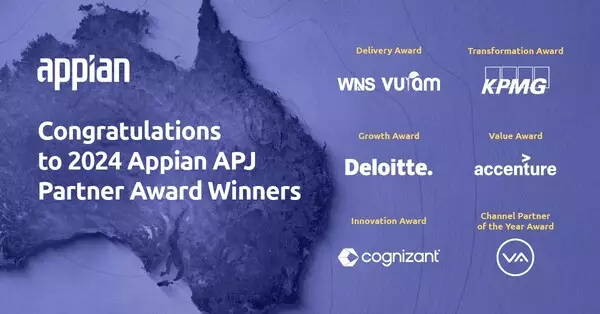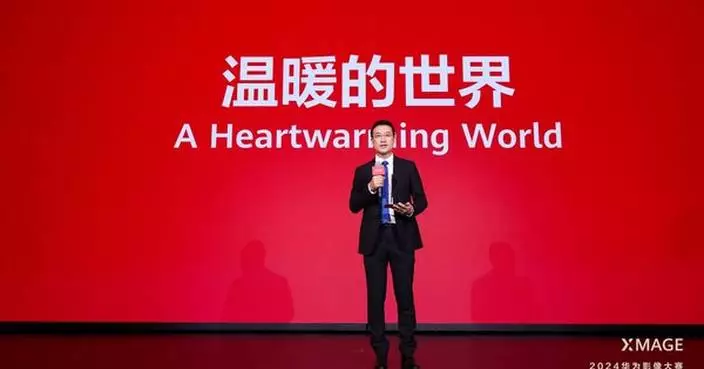PHNOM PENH, Cambodia, Nov. 28, 2024 /PRNewswire/ -- Fair Finance Asia's (FFA) latest report, Towards a Gender-Transformative Energy Transition in Asia, reveals critical gaps in the consideration of gender equality and women's empowerment in the early retirement of Cirebon 1 coal-fired power plant (CFPP) in Indonesia. The early retirement of Cirebon 1 is the first transaction under the Asian Development Bank's Energy Transition Mechanism (ADB ETM).
Launched on November 27 and endorsed by Climate Action Network Southeast Asia (CANSEA), Global Alliance for Incinerator Alternatives (GAIA), Reclaim Finance, Recourse, Reality of Aid Asia-Pacific (RoA-AP), and Fair Finance International (FFI), FFA's assessment considers Cirebon 1 an important case study for how the ADB's ETM model identifies and assesses gender issues, and whether the ETM promotes gender equality and women's empowerment. FFA urges the ADB to address the critical gaps in the gender considerations of the ADB's ETM pilot in Cirebon 1, as a basis for improving the ETM's implementation in other pilot countries.
Based on FFA's assessment of the Preliminary Just Transition Assessment (PJTA) summary report associated with the early retirement of Cirebon 1, FFA, partners, and allies demand more gender-disaggregated data collection, assessment, and inclusive and meaningful participation of women, other marginalized groups, and local women's rights organizations (WROs), consistent with commitments. Future data collection and assessments should consider the gendered impacts of the ADB's ETM pilot in Cirebon 1 on health, land rights and land-based livelihoods, unpaid care work, gender-based violence (GBV), energy access, changes to gendered power dynamics in households and communities, employment, and decent work. The ADB's just transition plan should also be guided by a commitment to advancing gender equality and women's empowerment through the design and delivery of gender-transformative interventions.
Moreover, given that the ADB's Strategic Environmental and Social Assessment's (SESA) scoping report pilot did a poor job of systematically identifying gender issues and involved limited participation from WROs, a stand-alone participatory gender impact assessment would be more useful to assess gender risks and opportunities arising from the energy transition and implementation of the ETM at the country level, and to make recommendations for gender equality and women's empowerment.
"The lack of a robust gender transformative framework in the ADB's ETM is a glaring oversight. Leaving half the population behind not only undermines commitment to equity, but also limits the energy transition's potential to fundamentally restructure gendered power structures in households and communities for the better and to advance gender equality and women's empowerment. It's time to prioritize gender equality as a foundational element in Asia's energy transition strategy. This can be realized by meaningfully identifying and addressing the barriers women face in accessing opportunities in the energy transition, and supporting the active engagement of women and WROs in decision-making and feedback loops," said Bernadette Victorio, Program Lead, Fair Finance Asia.
The ETM aims to incentivize the early retirement of CFPPs. For Cirebon 1, this means bringing its closure forward to 2035. The process is long and analysis and planning are still at an early stage. This means that there is only limited documentation available and not all documents are available in full. This presents challenges to understanding the full extent to which risks and opportunities for gender equality and women's empowerment have been identified. This long-time frame also presents challenges to holding the ADB, Cirebon Electric Power (CEP), and the Government of Indonesia accountable for commitments made to date.
"Women and girls are especially vulnerable to the gendered impacts of energy transition investments, such as increased incidence of GBV, gender-based discrimination in the form of unequal wages and access to work, negative impacts on their livelihoods due to disruption of ecosystem services, and limited inclusion in decision-making processes. They have also been disproportionately impacted during the operation period of Cirebon 1, and it must be ensured that these negative impacts do not persist during the ETM transition process. The ADB must ensure that ETM implementation in the CFPP upholds the rights and well-being of women and girls, and does not amplify risks and harms for them," said Herni Ramdlaningrum, Program Manager, the PRAKARSA.
FFA, partners, and allies believe that a just energy transition must be built on extensive, inclusive, and meaningful engagement with a wide range of stakeholders. However, civil society organizations (CSO) reiterate concerns that the Indonesia's Just Energy Transition Partnership (JETP) has been developed with inadequate public and civil society participation, poor disclosure of information, and limited transparency. Disregard for these important principles is of great concern to FFA, partners, and allies. Unless rectified, there is a risk that implementation of the JETP, the ADB's ETM, and Indonesia's energy transition, more broadly, will not be just.
"Women and girls in the communities are left behind in energy transition discussions. This explains why their concerns are rarely brought up with policymakers. In this case, women and girls should not be viewed as victims in the energy transition process. Instead, they are empowered actors if they have the resources. Thus, it is important to ensure that women and girls are not only involved in the process of energy transition but are also given opportunities to access and be part of capacity-building activities," said Dr. Genalyn G. Aquino-Arcayera, Program Manager, Fair Finance Philippines, Initiatives for Dialogue and Empowerment through Alternative Legal Services (IDEALS).
The report also raises concerns that the ADB's Environmental and Social Framework (ESF), which the ADB approved in late November 2024 as an update to its 2009 Safeguard Policy Statement (SPS), does not include a specific gender safeguard or requirements for mandatory project gender impact assessments. By considering gender a cross-thematic priority, the ADB's ESF misses a critical opportunity to include project-affected women and girls as participants and experts.
"Gender and climate justice are at the core of our work. As a country most at risk and vulnerable to the impacts of the climate crisis, a just transition away from the fossil fuel-based system is a must. Gender-just transformation must look at the differentiated impact of inequitable energy transition and intersecting issues of energy transition with gender inequality, GBV, and care work," said Joel Chester "Cheng" Pagulayan, Climate Justice Portfolio Manager, Oxfam Pilipinas.
"With the early retirement of Cirebon 1, we are presented with a crucial ten-year window to ensure a fair transition for all, especially for women and marginalized groups. We are proactively identifying the risks and opportunities in this paper with the hope that they are addressed well in advance and translated into concrete actions. We advocate for the active inclusion of women and marginalized communities in the development of ADB's ETM plans as their voices are integral to decision-making. It's essential that the energy transition is not myopic: issues such as health impacts, land rights, unpaid care work, gender-based violence, and access to decent employment must also be prioritized. We firmly believe that, with the right approach, the ETM can not only prevent the deepening of inequities but also work actively to bridge critical gender gaps," said Myrah Nerine Butt, Gender Justice Policy Advocacy Manager, Oxfam in Asia.
To strengthen the implementation of the ADB's ETM in Indonesia's Cirebon 1 and other pilot countries so that it promotes gender equality and women's empowerment, the report makes the following recommendations, among others, to the ADB:
FFA suggests for these recommendations to be implemented alongside initiatives to strengthen energy democracy through small-scale, locally owned, and gender-representative energy systems; to address barriers to women's labor force participation; and to emphasize a rights-based approach and gender-based needs for ecosystem resilience.
FFA's report considers documents published before 25 November 2024 and acknowledges that additional assessments will be undertaken and published by the ADB. The conclusions reached in FFA's report could, therefore, change based on information published in the future.
To read the full report, visit: bit.ly/FFAgenderETM
For further inquiries, contact:
Kyle Cruz
Knowledge and Communications Manager
Fair Finance Asia
kylejuliene.cruz@oxfam.org
Note to editors:
About FFA
Fair Finance Asia (FFA) is a regional network of Asian CSOs committed to ensuring that financial institutions' funding decisions in the region respect the social and environmental well-being of local communities. For more information about FFA, visit: https://fairfinanceasia.org/
** The press release content is from PR Newswire. Bastille Post is not involved in its creation. **

Fair Finance Asia reveals critical gaps in the gender considerations of the Asian Development Bank's Energy Transition Mechanism Pilot in Indonesia's Cirebon 1










